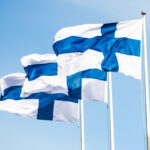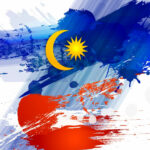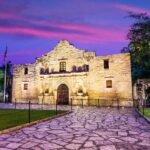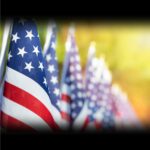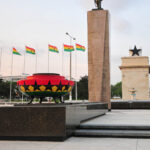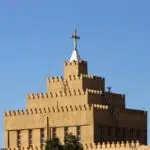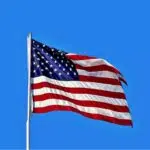Ghana Independence Day is celebrated every year on March 6. It is a public holiday for the citizens of Ghana and also widely celebrated among Ghanaians living abroad. If March 6 falls on a weekend, the following Monday will also be observed as a holiday. Ghana Independence Day is also known as Ghana National Day. The celebrations commemorate Ghana’s independence from the United Kingdom in 1957. The day is celebrated in public office with carnivals, parades, and other events. Private citizens celebrate the day with music and food, and some may even hoist the national flag at home.
History of Ghana Independence Day
Before the arrival of the Europeans, Ghana was home to the Ashanti, a powerful tribe in the region. Many different ancient Ghanaian tribes settled in areas that had an abundance of natural resources, including gold and ivory. These precious commodities are what attracted colonists and lured them to come to the shores of Ghana. While the Portuguese had been the first to establish a settlement in the region, the allure of the local riches led to a struggle for control between many European nations. In 1874, Britain took control over parts of the country, and Ghana was renamed the British Gold Coast.
After being weakened by the efforts of World War II, Britain decided to reduce its colonies and the power they held around the world, including those in Africa. This desire was bolstered by a rising call for independence in the Gold Coast. In 1947, the United Gold Coast Convention (U.G.C.C.), a local political party founded by J. B. Danquah, called for “self-government within the shortest possible time” following the Gold Coast legislative elections.
In 1951, former Secretary-General of the U.G.C.C. and founder of the Convention People’s Party (CPP), Osagyefo Kwame Nkrumah won a majority in the Gold Coast legislative election. He was appointed the leader of the Gold Coast government in 1952, and the Gold Coast region declared its independence from the United Kingdom on March 6, 1957. Following their independence, the new country was established as the Nation of Ghana. Nkrumah went on to become the first Prime Minister of Ghana, and Ghana became the first sub-Saharan African country to achieve independence from colonial powers.
Ghana Independence Day timeline
Akan trade with European states begins after contact with the Portuguese.
The Swedes arrive and establish the Swedish Gold Coast.
It calls for “self-government within the shortest possible time.”
Ghana celebrates its 50th year of independence.
Ghana Independence Day FAQs
How did Ghana get its name?
The name was drawn from an ancient African empire that was once famous for its significant power, land, and wealth. Ghana means ‘strong warrior’ or ‘war chief,’ which was the title given to the kings of this ancient kingdom located in some parts of modern-day Mauritania, Senegal, and Mali. The country was given this name on the eve of its independence in 1957.
When was Ghana declared a republic?
Ghana became a republic nation on July 1, 1960. A new constitution was adopted on that day, to convert the government from a parliamentary system to a republic led by a president.
What is the main food in Ghana?
The staple foods are cassava and plantain in the southern part of Ghana, and in the northern part, millet and sorghum. Yam, maize, and beans are also widely eaten across the country as well as sweet potatoes and cocoyam which appear in the typical Ghanaian diet and cuisine.
How to Observe Ghana Independence Day
Learn about the Father of Ghana
Learn more about Nkrumah's life with photos of his days as the president. Listen to Rev. Dr. Martin Luther King's sermon “The Birth of a Nation,” which he delivered after he visited Ghana for its Independence Day.
Sing along to ‘Ghana Freedom’
Music is integral to the culture of Ghana and a big part of any celebration. Sing along to some songs from Ghana, and introduce yourself to ‘Highrise,’ a local genre.
Learn the language
Learn the languages and slang from Ghana on Ghana Independence Day. Pick up phrases and terms that are unique to these languages.
5 Facts About Ghana That Will Blow Your Mind
Ghana means 'warrior king'
The word 'ghana' means 'warrior king' in the Mande and Sonike languages.
A war that lasted 77 years
The Anglo-Ashanti War, the longest against European invaders, lasted 77 years from 1823 to 1900.
The world’s largest man-made lake
Lake Volta spans over 320 miles.
Some Ghanaian tribes are matriarchal
The Akan people practice a system of inheritance based on the matriarchal lineage.
‘Fantasy coffins’ are common
The ‘abebuu adekai,’ or proverbial coffins, are shaped like objects that represent the profession or interests of the dead.
Why Ghana Independence Day is Important
It teaches us the country’s history
Ghana Independence Day is the perfect occasion to teach yourself the history of Ghana. From the reign of the Ashanti to modern-day democracy, it’s been a fascinating journey.
A day to try something new
Take Ghana Independence Day as an opportunity to do something new. Learn the language, try the cuisine, or listen to some Ghanian music.
A landmark day in African history
Since Ghana was the first sub-Saharan country in Africa to gain independence, the day was a huge inspiration. It encouraged other African countries to keep struggling for their freedom.
Ghana Independence Day dates
| Year | Date | Day |
|---|---|---|
| 2025 | March 6 | Thursday |
| 2026 | March 6 | Friday |
| 2027 | March 6 | Saturday |
| 2028 | March 6 | Monday |
| 2029 | March 6 | Tuesday |


